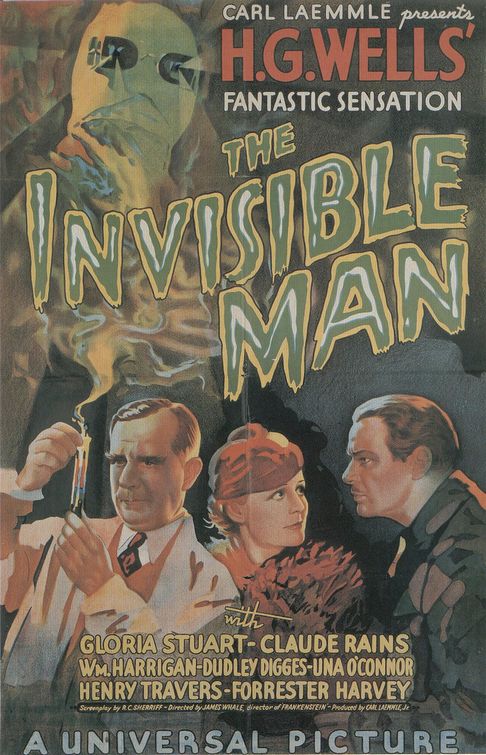
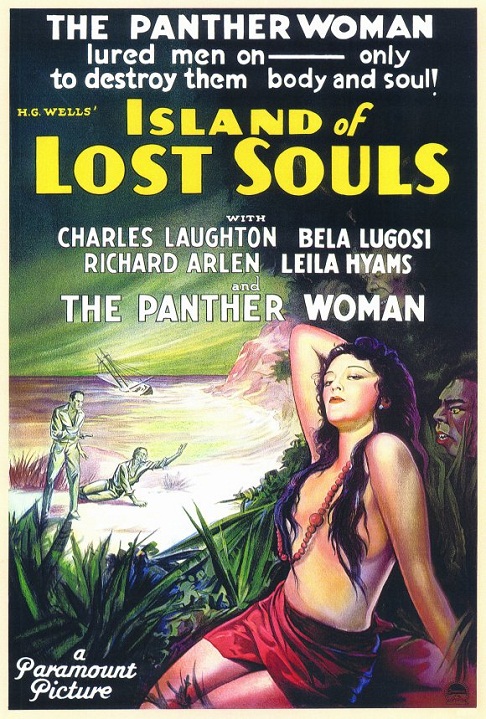
Film Forum has a simply beautiful double-feature going on tonight, as part of their ongoing series celebrating the movies of the year 1933. If for KING KONG alone, 1933 would already be one of the most important years in film history, but it’s astonishing to see how so many movies made a literal lifetime ago are still so vibrant, relevant, and straight-up wackadoo. Take today’s dynamic duo, for instance — James Whale’s THE INVISIBLE MAN and Erle C. Kenton’s ISLAND OF LOST SOULS. Both films are based on novels by visionary author H.G. Wells (ISLAND OF LOST SOULS is a retelling of THE ISLAND OF DR. MOREAU), and like Wells’ work, both films have themes, ideas, and images that continue to thrill and fascinate, eighty years later.
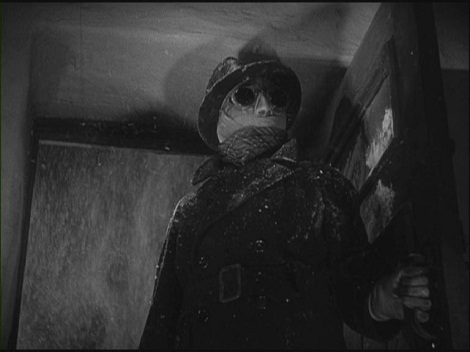
THE INVISIBLE MAN is one of the great Universal horror pictures. Like the rest of the Universal Monsters, the title character has become a Halloween hallmark, despite beginning life as a literary creation. But Dr. Jack Griffin, The Invisible Man, is different than the others — in some ways the most disturbing. He’s arguably the least charming of them all. Count Dracula is totally evil, but he’s got old-school swagger. The Wolfman, Larry Talbot, is tragic and tormented. He doesn’t ever want to hurt anybody, but when things get hairy, he can’t help himself. The Mummy and Frankenstein’s Monster are similarly tragic figures. Im-Ho-Tep is a romantic at heart, and as for Frank, he can’t help that he was built out of murderer parts. The Creature From The Black Lagoon is basically an animal. He can’t really be blamed for his horniness or his killing sprees. Griffin can be. He was a scientist. He knew the risks. He invented the invisibility serum and took it himself, despite knowing that the compound had a side-effect of insanity. Then he began plotting, and killing. Not a good guy. There’s no angst or ambiguity there.
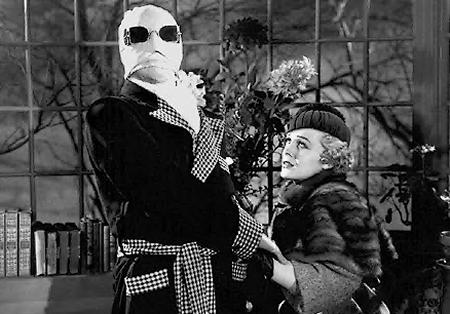
The director was James Whale, who had previously made FRANKENSTEIN and BRIDE OF FRANKENSTEIN (not to mention THE OLD DARK HOUSE). As much as he is justly admired by horror fans on a case by case basis, it still strikes me that James Whale is underrated as an auteur. Many directors have successfully traversed genres, but not nearly many have successfully traversed tones. FRANKENSTEIN is spooky and shocking in parts, but even today, it leaves the viewer with a sense of melancholy. BRIDE OF FRANKENSTEIN has its eerie bits, but generally succeeds most as high camp. These are strikingly different experiences both from each other and from THE INVISIBLE MAN. THE INVISIBLE MAN is upsetting, creepy, troubling — and occasionally dryly funny, since it’s James Whale after all. But as a central figure, Griffin is malicious from the get-go. There’s no arc. He’s not a good guy who goes bad, and certainly not a bad guy who finds a heart. He’s a villain. His final fate leaves the viewer (or me, at least) cold. When the movie ends, you don’t miss him, not the way you miss any of the other Universal Monsters.
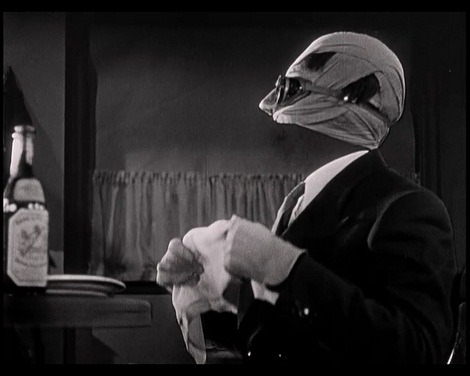
Which, of course, didn’t stop any of the sequels and team-ups that followed. The central conceit of invisibility was still wide open to be eagerly explored, and the special effects, even now but especially for the time, were thrilling and inventive. It’s a blast to watch Whale and his team work. It’s very fun to watch the movie, even if I’ve described it as a good-bad time. Preston Sturges contributed to the script! Claude Rains gives an impressive performance, despite the fact that by definition we hardly see him in the movie. The ingénue is Gloria Stuart, who my generation only knows from TITANIC. There are cameos by Dwight Frye (DRACULA), Walter Brennan (RIO BRAVO), and John Carradine (who would eventually play Dracula in HOUSE OF FRANKENSTEIN, but that’s a whole ‘nother story).
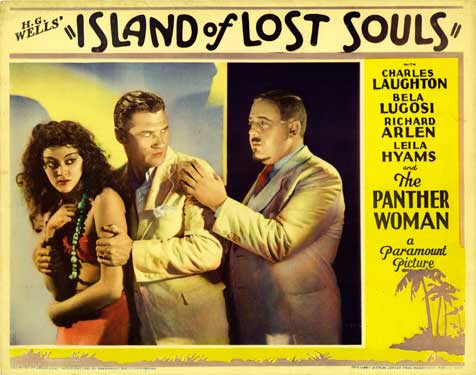
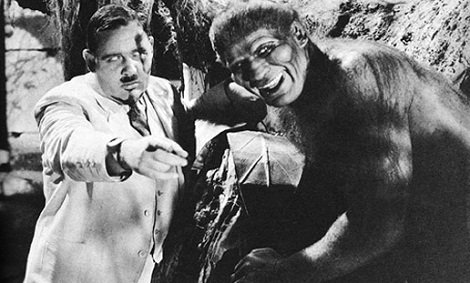
Now, ISLAND OF LOST SOULS is a different kind of beast. For one thing, it’s a Wells property that ended up at Paramount, not Universal, so it has a different vibe to begin with: Different studio lots, different stock players (Bela Lugosi aside), different auteur — Erle Kenton, who later directed the aforementioned HOUSE OF FRANKENSTEIN, does not feel quite as much personally present in the DNA of his films as James Whale does. That’s not to say that ISLAND OF LOST SOULS isn’t just as captivating and unshakeable as a Universal Monsters picture. In many ways, it’s weirder, certainly more perverse. That’s a direct effect of the subject matter. Dr. Moreau (Charles Laughton in this telling) experiments on animals and turns them into human hybrids. There’s something truly creepy about seeing half-animal people develop their own consciousness, only to resort to violence after all — and that’s not all that’s creepy. The animal-men revolt, demanding independence from their creator, and that’s eventful enough, but there’s also a panther-woman in the movie, to fulfill the bizarro-sex quotient. People were really into that panther lady as a drawing point, as you can see from the poster. I guess this movie predicted Comic-Con by several decades.
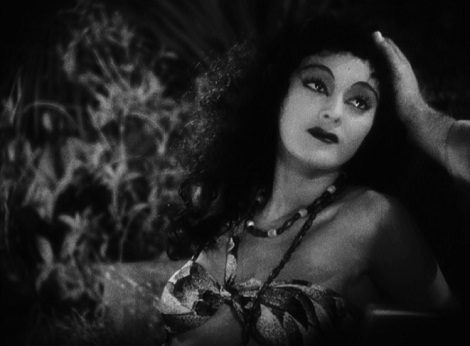
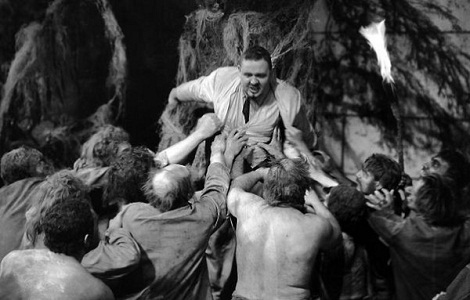
ISLAND OF LOST SOULS has a pretty punk-rock rep as far as vintage horror flicks goes, probably due to the censorship issues surrounding its original release, and its aftershocks continue to turn up with every generation. Weirdly, it has influenced musicians as much as anyone, its references surfacing in the work of acts as disparate as Devo, Van Halen, and House Of Pain. Maybe there’s an aura of adjacent hipness to the film, since it combines Bela Lugosi (DRACULA) with the legendary Charles Laughton (who not only played THE HUNCHBACK OF NOTRE DAME but also directed the cult classic NIGHT OF THE HUNTER) and Leila Hyams (who also appeared in the incredible cult film FREAKS). Or maybe it’s just that unforgettable.
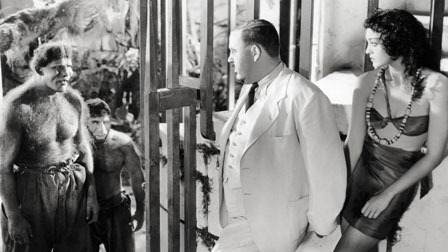
@jonnyabomb
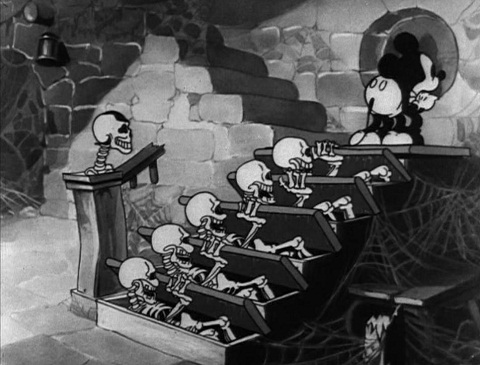
- [THE BIG QUESTION] WHAT’S YOUR FAVORITE FEMALE ENSEMBLE IN MOVIES? - July 22, 2016
- [IN THEATERS NOW] THE BOY (2016) - January 24, 2016
- Cult Movie Mania Releases Lucio Fulci Limited Edition VHS Sets - January 5, 2016





No Comments